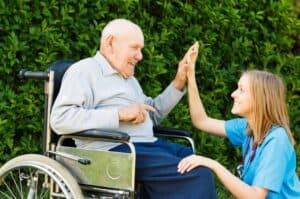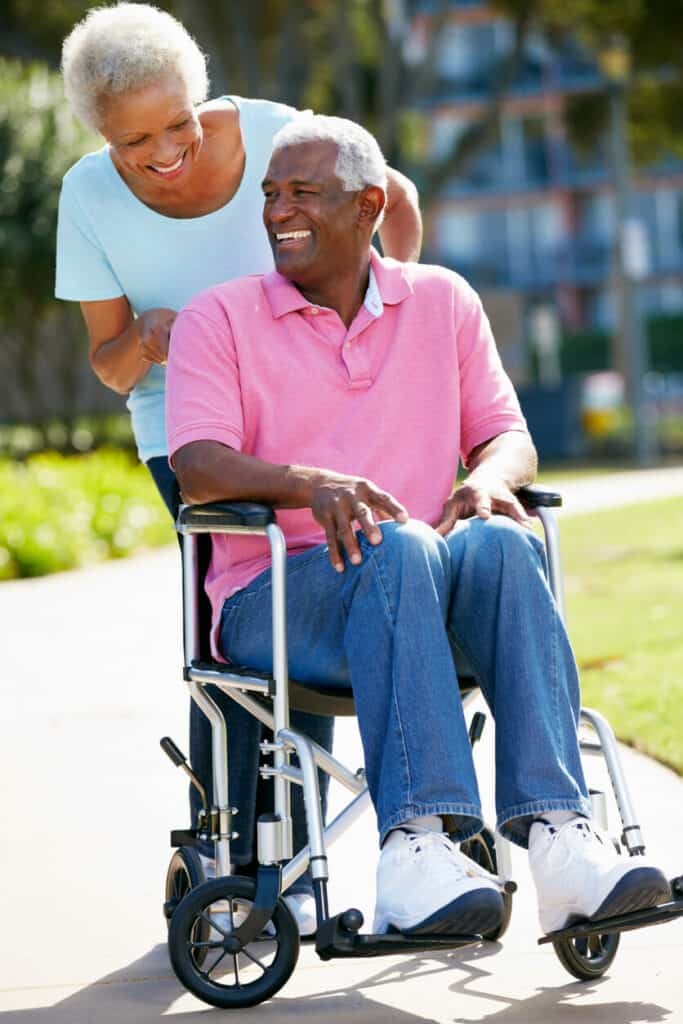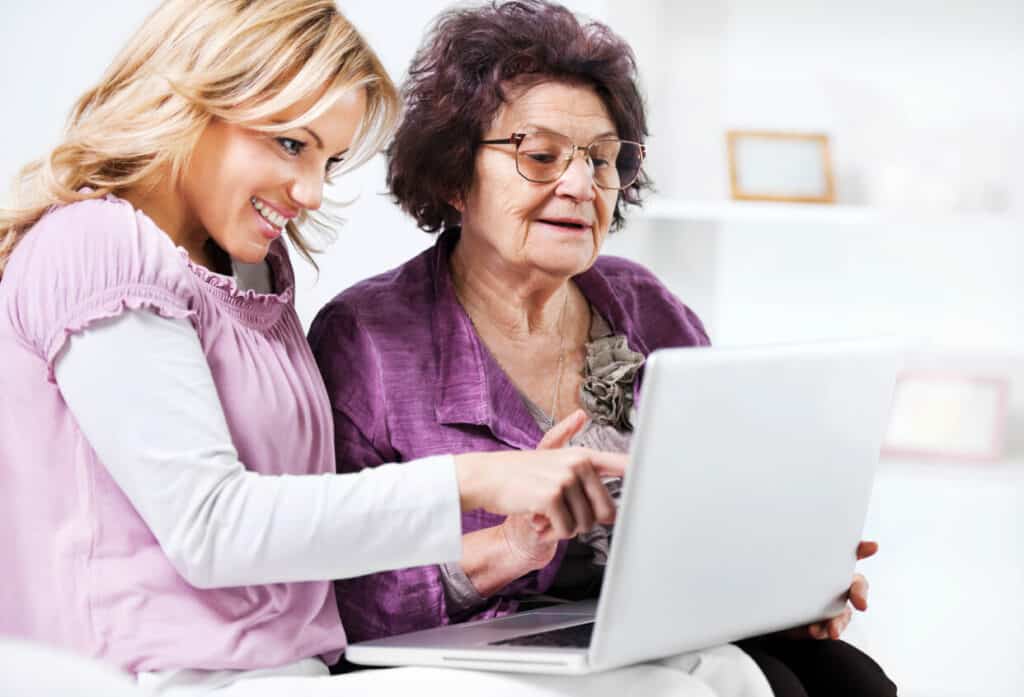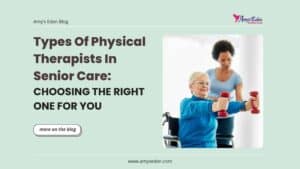
8 Memory Care Requirements That You Need to Consider Before Committing Your Loved One
Have you noticed a decline in cognitive and memory abilities as your loved one ages? In some individuals, this decline can be more pronounced, resulting

Adult and unmarried children often assume the family caregiver role for a relative who requires care. After that, spouses take on the care responsibilities. Many husbands and wives volunteer to do it since caring for someone close to them during difficult times gives them a sense of purpose and fulfillment.
Becoming a spouse caregiver is a challenging task, but it might come with benefits, such as getting compensated for it. As a leader in providing quality care, Amy’s Eden understands the people struggling to maintain a dual role, so we want to share ideas on how to get paid as a spousal caregiver, including what caregiving training to take, and self-care tips to avoid burnout.

A spousal caregiver is a husband or wife caring for an ill, disabled, or injured spouse. Most spousal caregivers don’t have any caregiving training and are primarily self-educated.
Several scenarios lead to being a caregiver for a spouse. For instance, a husband gets into an unfortunate car accident and, after hospitalization, needs to recuperate at home. The wife then becomes a family caregiver. Another instance is if a loved one was diagnosed with a chronic condition, like dementia.
Caregiving pressures are more strenuous in aging husbands or wives who become spousal caregivers. Most often, the one giving care also has a health condition due to old age.
Any healthy family member, including young children and spouses, can be a family caregiver in their own way. A spouse can care for a loved one with a health condition or recuperating from an injury in many ways. They can give social support and companionship care better than an adult child caregiver who often has other obligations to fulfill, like going to work or raising their own kids.
Retired spouses also have more time to cater to the needs and errands of their ill loved ones, such as going to the doctor’s appointments, which an adult and working family caregiver often can’t do. The relationship between a husband and a wife is special because of marriage, so a husband caregiver for a wife or vise-versa can provide better emotional support and almost round-the-clock care as they live in the same home or an assisted home.

In estimate, there are 53 million caregivers in the US, and about 12% care for a spouse or partner. Most of them, about 91%, care for their spouses alone and without any outside help.
Spousal caregivers are prevalent, but since adult children frequently assume caregiving duties, support for spouses is often overlooked.
Everyone should realize that caregiving stress and burnout affect spousal caregivers equally or even more than adult children. One reason is that most spousal caregivers live under the same roof as their partners and therefore monitor their loved one 24 hours a day.
Thankfully, some programs allow a wife caregiver for a husband or vice versa to get paid in exchange for care services. However, this is subject to eligibility requirements, such as the state of residence, yearly income, current assets, types of insurance, and if the care beneficiary or care provider is a veteran. Some of these programs are:
These programs are known as “consumer-directed personal assistance programs” and permit the care recipients to hire a caregiver of their choice. If approved and qualified, they can elect their spouses as personal caregivers. Their spouses get compensated between $10.75 to $20.75 for every hour of rendered service.
If you want to know whether you qualify for one of these programs, contact your state’s Elders Affairs office. Enter your zip code or city and state to find the contact details.
As of June 2021, these programs are only available in 15 states and under specific programs.
These states are:

Although caring for a loved one is something one does voluntarily, getting paid for it is a bonus. If you’re happy looking after a loved one, you’d want to know how to become a spousal caregiver, including what training or resources are available. There are two ways you can go about this.
If you choose to be an unpaid spousal caregiver, undergoing non-medical caregiving training and getting a certification is unnecessary. It helps if you receive formal caregiving education, but if it’s not an option due to your circumstance, such as you’re in your 70s and have a health condition, you can self-educate and accumulate caregiving experience as you go.
It’s a different story if you want to be a paid spousal caregiver. Some government programs and long-term insurance companies may require you to get a caregiving certification similar to that of a career caregiver if you want to get paid as a family caregiver.
The requirements and the length of training vary based on state regulations, the type of program, eligibility, and other criteria.
The process is complicated, but the first step you want to take is to ensure that you qualify for one program. To know if you do, contact the following elder care resources for more information.
The American Caregiver Association certifies caregivers in the US. The organization offers different courses, such as the National Caregiver Certification Course and Advanced National Caregiver Certification Course, for spouses and other family members who want to be professional caregivers and get paid for their services. Training programs can vary between days to several weeks, depending on the course.

As a certified spousal caregiver, you can compassionately provide several non-skilled care services to your spouse. These can include:
The earning opportunity is the best advantage of obtaining professional caregiving training. Most family caregivers, however, don’t get paid for their care services.
Becoming a spousal caregiver carries a considerable shift and challenges to the husband-and-wife relationship. For one, the relationship you once cherished with your partner could become unfamiliar, especially for diagnoses like dementia.
Since the person you care for can no longer be intimate with you and do their share of home obligations, it could feel like you’ve been left entirely alone to run the household and take care of many things. This may lead to mental health concerns, like spouse caregiver loneliness, burnout, and depression.
Based on statistics, spouses are 27% more likely to experience fair or poor health than adult children and other family caregivers. Spouse caregiver burnout is among the top health issues for husbands and wives turned caregivers. One contributing factor is age, as most spouse caregivers are at least 62.5 years old on average.
Loneliness and burnout are more debilitating to health and often lead to caregiver resentment toward their spouse. Self-care should come first on your priority list because your own health is crucial.
Here are some self-care tips to help you balance the roles of a caregiver and a spouse and protect your physical and mental health.

Caregiving is an overwhelming task to do alone by a spouse. Caring solely after a loved one with higher functional and emotional needs can be too risky for the caregiver’s health. If you’re a family caregiver, whether to a spouse, an aging parent, or a child, remember to always ask for help before caregiving pressures take a toll on your health.
At Amy’s Eden, we acknowledge the selfless contribution of family caregivers in promoting their loved one’s health. At the same time, we also advocate for creating a better harmony between the caring role and personal life.
Caring for someone is taxing, so if you need respite and a few days off to focus on your health, contact us for some backup. We have caregivers around Nevada that can relieve you of some of the care tasks you do for a loved one, such as personal care and running errands.
Get care >

Have you noticed a decline in cognitive and memory abilities as your loved one ages? In some individuals, this decline can be more pronounced, resulting

When we think about healthcare for seniors, we might not think of sports therapists. They usually work with athletes and help them stay fit. However,

Are you considering physical therapy as a career option? Sometimes, you may or may not know what to expect once you become a certified physical

Do you find it harder to move around like you used to? Is chronic pain affecting your daily activities and overall quality of life? Do
